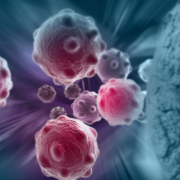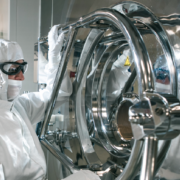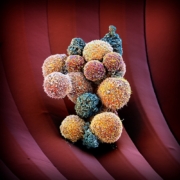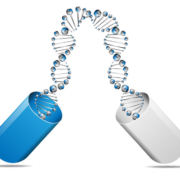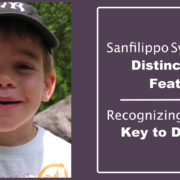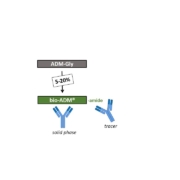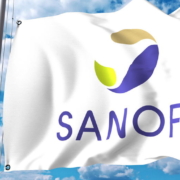German researchers have modeled when cellular alterations inevitably lead to the development of cancer. The transition is tissue-specific and needs only a few cells.
ADVERTISEMENT
Datwyler Sealing Solutions is a leading industrial supplier and a key player in the global health care world. Our unique product range includes the most advanced elastomer formulations, coatings, aluminum seals, and processing technologies. These are based on a broad spectrum of experience in the healthcare industry. To ensure the highest quality in our broad product portfolio, we have implemented the most advanced manufacturing standard.
A team of Swiss researchers has identified Na+/K+-ATPase blockers as candidate drugs capable to prevent formation of metastases. In blood, the repurposed drugs identified in a screening dissociated clusters of circulating tumour cells (CTCs), forerunners of metastases.
In summer the European Court of Justice (ECJ) ruled that crops created by biological mutagenesis techniques fall under EU GMO legislation. Germany’s government and the European Parliament see no need to take action.
Protagen AG, a precision medicine specialist at the forefront of immuno-profiling, announced today the appointment of Immuno-Oncology experts PD Dr. Jessica Hassel (National Center for Tumor Diseases, Heidelberg, Germany) and Dr. Aurélien Marabelle (Gustave Roussy, Paris, France) to its Scientific Advisory Board.
Just in mid-December, antibiotic resistance detection expert Ares Genetics (Vienna, Austria) inked an agreement with Sandoz to use its pathogenome database and bio-IT know-how to develop repurposed and novel antiinfectives that help fight antimicrobial resistance (AMR). Now, the company baged another financing to expand its diagnostic capabilities.
Experts in artificial intelligence (AI) have created another problem for bioethicists and data protection specialists: their algorithm has learned to identify people with rare genetic syndromes from facial images.
Immunocore has appointed Bahija Jallal as Chief Executive Officer and Director of the Board.
Bio-ADM, the very first blood biomarker capable to diagnose when blood vessels become leaky (endothelial dysfunction), is set to make a rapid carrier at intensive care units (ICUs) and emergency departments (EDs) of hospitals. Data from pilot clinical routine testing presented at the 2nd Scientific Symposium on Endothelial Disruption (18. December 2018) in Berlin impressively confirmed results from previous tests on 30,000 patients with acute heart failure (AHF) and severe sepsis indicating that bio-ADM testing improves medical decision making to prevent mortality, organ damage and rehospitalisation. An automated point-of-care (POC) test measuring bio-ADM both as a biomarker and as a companion diagnostic to a therapeutic antibody (adrecizumab) that repairs endothelial dysfunction, will be launched by H1/2019 by Sphingotec GmbH. However, bio-ADM is just the first representative of a full pipeline of diagnostic blood proteins reflecting disturbed signalling pathways underlying disorders of unmet medical need.
Sanofi and Regeneron announced they have "restructured" their US$2,17bn immunoncology collaboration. While the companies will continue co-marketing of the FDA approved (2018) PD1 blocker cemiplimab (REGN2810) as treatment for cutaneous squamous cell carcinoma, Sanofi will quit development of early stage antibody discovery programmes under the 2015 agreement.


